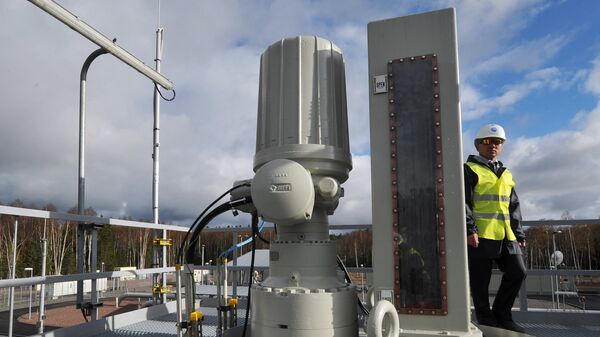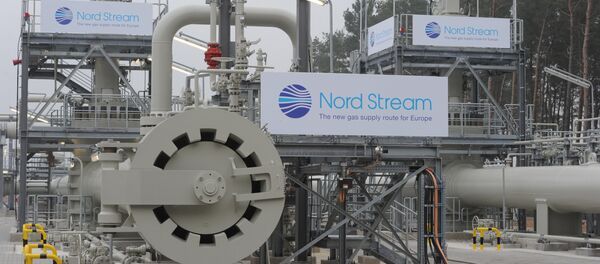Nord Stream-2 will create obstacles for the EU sanctions policy against Russia, and thus will undermine German Chancellor Angela Merkel’s efforts. Amid the crisis in Ukraine, Merkel was the leader who initiated the sanctions. But now the chancellor is ready to greenlight the new pipeline from Russia, Carnegie Europe analyst Judy Dempsey pointed out.
Large energy companies like Shell already signed an agreement with Russia’s Gazprom on gas supplies to Germany via the Baltic Sea. While this is just an agreement and not an actual project at this time, "it remains a mystery how an oil and gas deal with the Russian government was allowed under the European sanctions regime," Rapoza wrote.
According to the journalist, the Russian pipeline can be blamed for the flaws in the European energy security system.
"I think what Germany is doing now is calming the concerns of Eastern European states. Some of these states now risk losing hundreds of millions of euros if transit of Russian gas ends," Igor Yushkov, an analyst at the National Energy Security Fund, told Svobodnaya Pressa.
"As for 'guarantees from Russia', it is unclear what Gabriel meant. If it is about long-term contracts it should be settled via multilateral talks. But I think Germany’s main concern is Ukraine which would lose over $2 billion of transit incomes that cannot be compensated. If this happens, the EU, and particularly Berlin, would have to help Kiev. This is why Gabriel has urged a compromise – building Nord Stream-2, but with guaranteed gas supplies to Ukraine," the expert pointed out.
"The pipeline expansion may not benefit some individual member states, but the project is — on aggregate — beneficial for Europe," Tim Boersma, acting director in the Energy Security and Climate Initiative at Brookings, was quoted as saying by the author.
"Counterintuitive as it may sound, Nord Stream-2 is a good idea provided that EU member states continue their so far successful efforts to further integrate energy markets. The fact that they have not done so already is something Europe should hold against itself, and it is not the result of Russian mingling," he added.
In order to provide energy security in the EU, member states should implement legislation, fight corruption and step up efforts to complete the internal market. Those efforts should be made in Hungary, Bulgaria, Poland and in Brussels, Boersma said.



